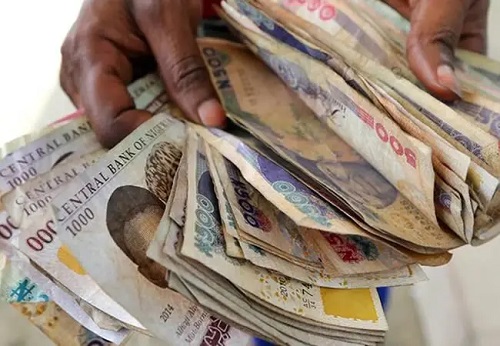This post has already been read 1363 times!
The naira, Nigeria’s currency, experienced a historic decline in the parallel market on Tuesday as a result of the country’s persistent dollar shortages and heightened demand for the greenback. The unit depreciated by 1.5% to ₦1,305 per dollar. This widened the gap between the parallel market rate and the official rate, which closed at ₦838 on Monday, to 36%, according to FMDQ, which tracks exchange rates for the country.
Dollar demand in Nigeria has been steadily increasing since the start of January. Businesses are seeking to restock goods or acquire raw materials, while individuals require dollars for studying abroad. However, there has been a shortage of dollars in the market, driving up demand and causing the naira to decline in value.
President Bola Tinubu’s foreign-currency reforms last June also played a role in the naira’s depreciation. These reforms led to the naira losing about 50% of its value against the dollar in the previous year.
To address the foreign-currency shortages and boost investor confidence, the Central Bank of Nigeria (CBN) has pledged to clear a backlog of forward foreign-exchange contracts. This backlog is estimated to be between $7 billion and $10 billion.
Last week, the Nigerian government received $2.25 billion from a syndicated loan arranged by the African Export-Import Bank to stabilize the foreign exchange market. An additional $1.05 billion is expected to be received later.
Despite these efforts, dollar liquidity in the official foreign-exchange market declined by 69% on Monday to $26.37 million, according to an emailed note from investment bank Chapel Hill Denham. This indicates the ongoing challenges Nigeria faces in addressing the foreign-currency shortages and stabilizing the naira.



